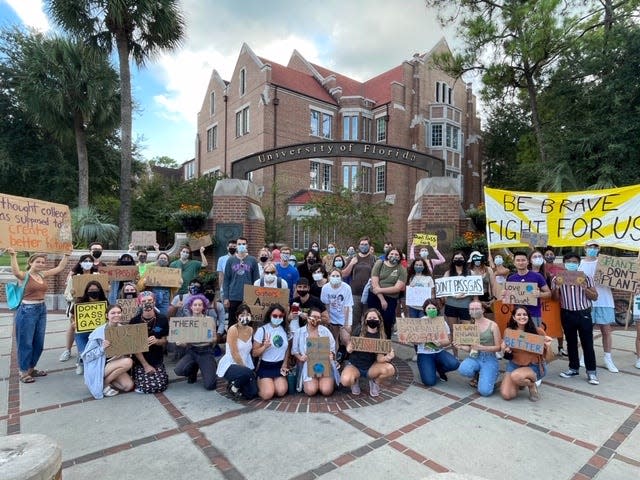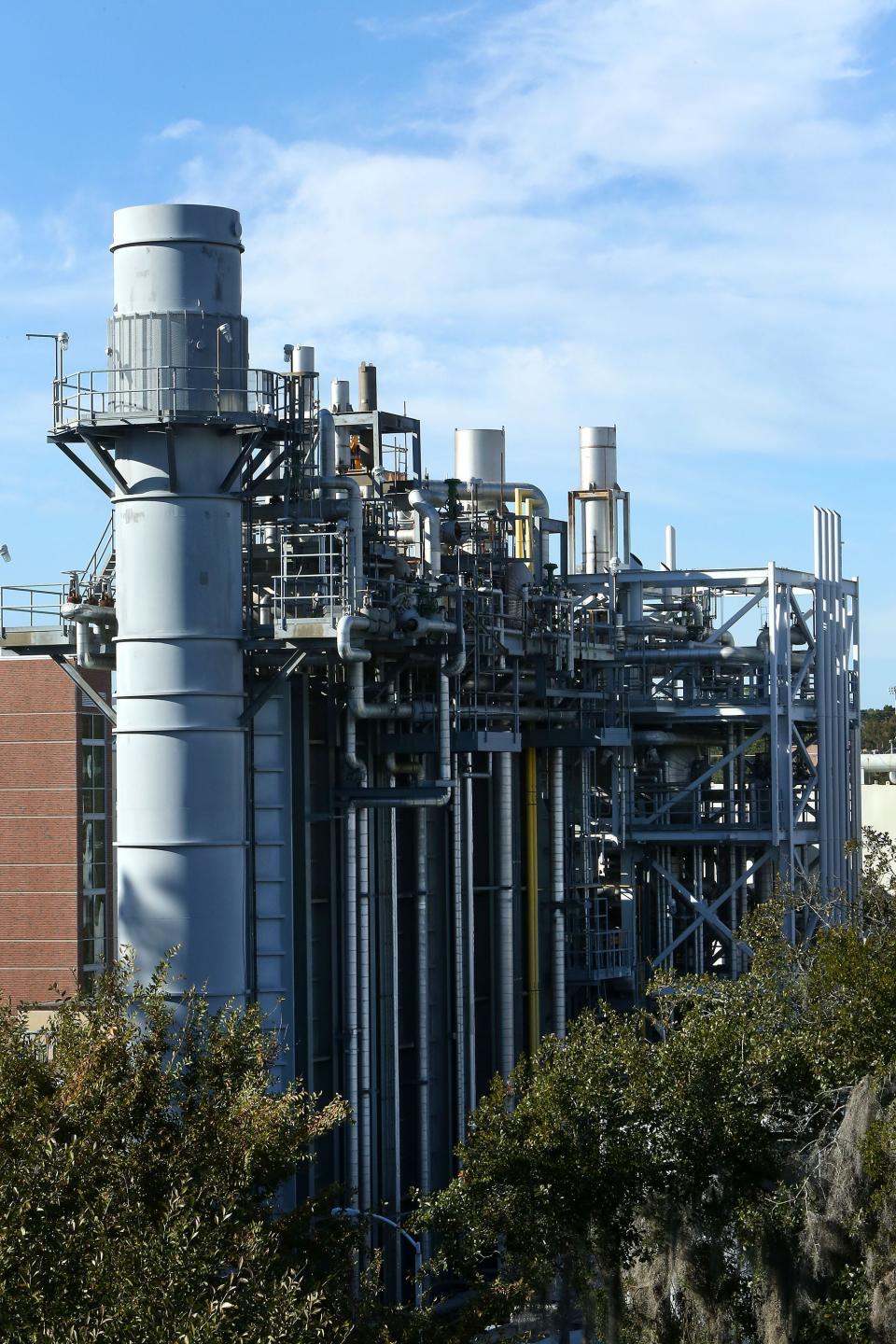Clinicians to UF: Protect health with clean power
The mission of the Florida Clinicians for Climate Action, a group of clinicians across the state representing a diverse set of specialties, is to educate health professionals and the public about the impact a warming climate is currently and increasingly having on our health.
We join together now to ask University of Florida President Kent Fuchs and the UF board of trustees why they have not acted on the analysis provided by the Rocky Mountain Institute to provide for UF’s energy needs by tapping into renewable energy and making upgrades to energy efficiency and storage. As detailed in The Sun in March, the institute’s clean energy proposal would be more than $100 million less than the UF trustees’ current plan, which is still outlined on their website, to build a methane-burning plant referred to as the Central Energy Plant.
The Central Energy Plant proposal would use what is arguably the worst fossil fuel when it comes to fueling the climate emergency. Methane, sometimes referred to as “natural” gas, is a super-pollutant which is more than 80 times as potent in warming the planet in its first 20 years compared to carbon dioxide. Although coal produces more air pollution in the form of particulate matter than methane, this does not make methane a safe or clean fossil fuel.

Burning methane kills people. Methane has been associated with significant health hazards and reduced social welfare at every stage of its life cycle. Methane extraction causes contamination of ground and surface water, radiation releases, earthquakes, ecosystem damage and dramatic air pollution at production and compressor sites. The substances causing this air pollution cause cancer, reduce lung function, cause and worsen lung and heart diseases, and are recognized by the Centers for Disease Control and the National Institutes of Health as hazardous respiratory pollutants.
These hazards add up. The Massachusetts Institute of Technology’s Laboratory for Aviation and the Environment estimated that pollution from the burning of fossil fuels, including methane, kills 9 million people annually around the world, including 200,000 people in the U.S. That makes air pollution from burning fossil fuels the fourth highest cause of death in the U.S. and globally — deaths that could be swiftly prevented by taking pathways such as the one presented to UF trustees by the Rocky Mountain Institute.
Furthermore, climate change has been called "the greatest threat to human health" by the Lancet Commission since 2009. More recently, the World Meteorological Organization announced “there is a 50:50 chance of the annual average global temperature temporarily reaching 1.5°C above the pre-industrial level for at least one of the next five years.”
In 2015, the chance of this was zero, underscoring the rapid pace of human-caused climate change. We simply do not have time to waste building fossil fuel-burning plants, especially when cheaper clean and renewable options are available.
UF is a distinguished institution, last fall named a top-five public university by U.S. News and World Report. While it is a remarkable achievement, the school’s reputation is now under threat due to the UF board of trustees’ continued commitment to this outdated and damaging proposal to build the Central Energy Plant. Surely a top-five public university does not need to add to the epic challenge of dramatically increasing warming in the short- and long-term and further contribute to the adverse health effects of climate change and air pollution.

It’s clear what the right path is when it comes to the future health of UF’s students, faculty and surrounding community. It is also the only fiscally responsible path forward, and one that aligns with UF’s own goal to achieve carbon neutrality by 2025. To remain befitting of UF’s distinction of a top-five public university, UF should meet its energy needs in a way that ushers in the future of clean renewable energy, not one that clings to the past.
The Gator Nation has an opportunity to lead the public university system into the era of clean, renewable energy. To the UF trustees: We, the Florida Clinicians for Climate Action, urge you to take it. If you do not, we fear for the repercussions for UF, the Gainesville community, our nation and our world.
Carol Lindsey, a nurse practitioner, and Shauna Junco, a clinical pharmacy specialist in infectious diseases, are both proud UF graduates who co-chair the Advocacy Committee of the Florida Clinicians for Climate Action. For more information, see floridaclinicians.org.
Join the conversation
Share your opinions by sending a letter to the editor (up to 200 words) to letters@gainesville.com. Letters must include the writer's full name and city of residence. Additional guidelines for submitting letters and longer guest columns can be found at bit.ly/sunopinionguidelines.
Journalism matters. Your support matters.
Get a digital subscription to the Gainesville Sun. Includes must-see content on Gainesville.com and Gatorsports.com, breaking news and updates on all your devices, and access to the eEdition. Visit www.gainesville.com/subscribenow to sign up.
This article originally appeared on The Gainesville Sun: Florida Clinicians for Climate Action: UF should use clean power

